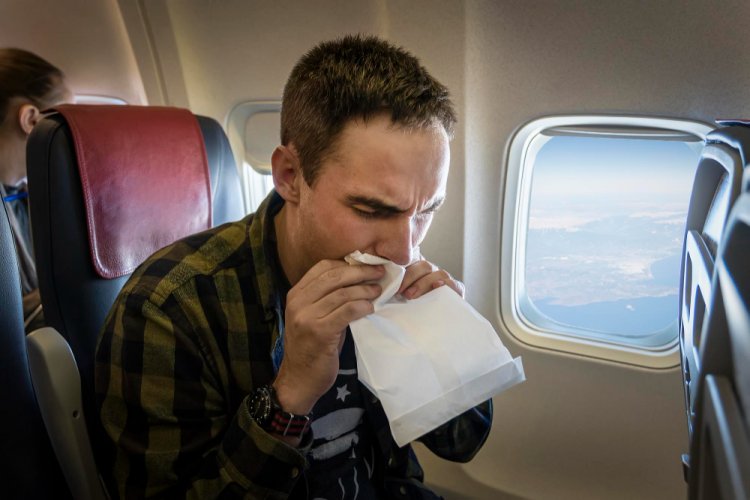The Mind-Body Mismatch: Why Does Motion Sickness Happen?
Motion sickness, also known as kinetosis, is a common phenomenon that affects individuals when they are exposed to certain types of motion. Whether it's traveling by car, boat, airplane, or even virtual reality simulations, motion sickness can make the experience unpleasant for many. This article delves into the intricacies of motion sickness, exploring its causes, symptoms, and potential remedies.

Understanding Motion Sickness
Motion sickness occurs when there is a dissonance between what your eyes see and what your inner ear, or vestibular system, senses. This sensory mismatch confuses the brain, leading to symptoms such as nausea, dizziness, sweating, and vomiting. Essentially, motion sickness is a form of sensory conflict, where the brain receives conflicting signals about motion and spatial orientation.
Causes of Motion Sickness
The root cause of motion sickness lies in the complex interplay between visual stimuli and the vestibular system. When you're in motion, your eyes send signals to your brain indicating movement, while your vestibular system senses motion and balance. However, in certain situations, such as reading in a moving vehicle or watching a shaky video, the visual cues may contradict the signals from the vestibular system, triggering motion sickness.
Additionally, individual susceptibility to motion sickness varies widely. Some people are more prone to it than others, and factors such as age, genetics, previous experiences, and overall health can influence one's susceptibility.
Symptoms of Motion Sickness
The symptoms of motion sickness can range from mild discomfort to severe nausea and vomiting. Common symptoms include:
- Nausea
- Dizziness
- Sweating
- Pale skin
- Headache
- Fatigue
- Increased salivation
- Vomiting
These symptoms can occur gradually as exposure to motion continues, and they typically subside once the motion ceases or when the individual returns to stable ground.
Remedies and Prevention
While motion sickness can be unpleasant, there are several strategies to alleviate symptoms or prevent them altogether:
- Choose the right seat: When traveling, opt for a seat where motion is minimized, such as the front seat of a car or the middle of a plane over the wings.
- Focus on the horizon: Fixing your gaze on a stable, distant object, like the horizon, can help reduce conflicting visual cues.
- Avoid reading: Reading or looking down while in motion can exacerbate motion sickness. Instead, engage in activities that promote stable visual input, such as looking outside or listening to music.
- Stay hydrated: Dehydration can worsen motion sickness symptoms, so drink plenty of water before and during travel.
- Medications: Over-the-counter or prescription medications, such as antihistamines or scopolamine patches, can help alleviate symptoms for some individuals. However, they may cause drowsiness and other side effects.
- Acupressure: Some people find relief from motion sickness by wearing acupressure wristbands, which apply pressure to specific points on the wrist.
In conclusion, motion sickness is a common occurrence that can dampen travel experiences for many individuals. Understanding its causes and symptoms is the first step toward managing and preventing it. While there is no one-size-fits-all solution, employing a combination of preventive measures and remedies can help mitigate the discomfort associated with motion sickness, allowing individuals to enjoy their journeys to the fullest.
#MotionSickness #TravelNausea #VestibularDiscomfort #CarSickness #SeaSickness #AirplaneNausea #VirtualRealitySickness #NauseaRemedy #PreventMotionSickness #RemediesForMotionSickness #UnderstandingVestibularSystem #ManagingSeaSickness #PreventMotionSicknessInChildren #AmusementParkRides #HealthTips
Disclaimer:
The information provided in this article is for educational purposes only and should not be considered medical advice. If you have any health concerns or are experiencing symptoms, it is important to consult with a healthcare professional, such as a doctor or clinic, for proper diagnosis and treatment. Always seek the advice of your doctor or other qualified health provider with any questions you may have regarding a medical condition. Do not disregard professional medical advice or delay in seeking it because of something you have read in this article.
What's Your Reaction?





















